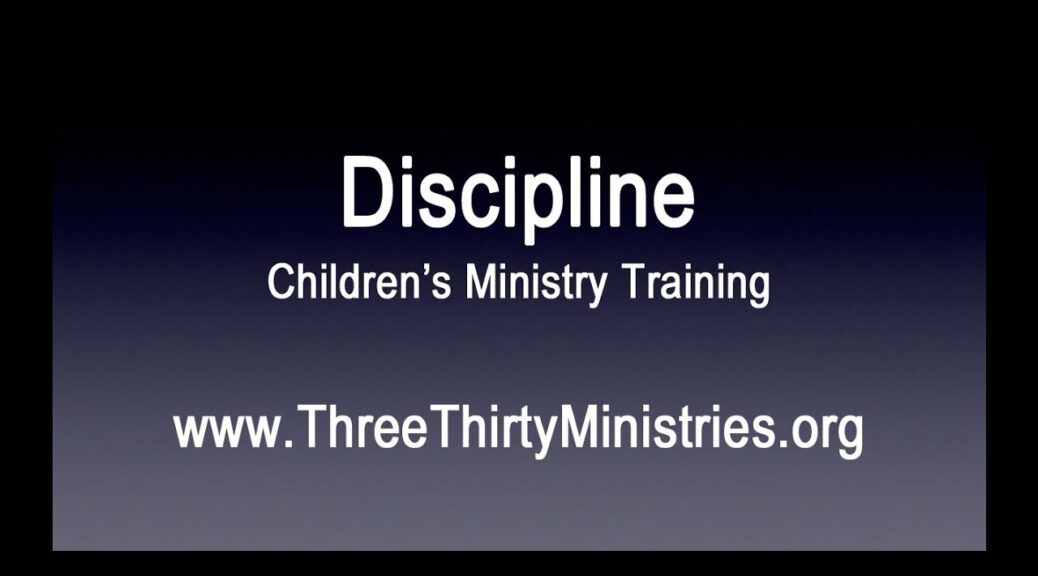Enjoy this audio session on-the-go…
Category Archives: Teaching Tips
Control Tools
Listen to this audio session on-the-go…
Making the Bible Come Alive, part 2
Enjoy this audio session on-the-go…
Making the Bible Come Alive, part 1
Enjoy this audio session on-the-go…
Making a Difference
Enjoy this audio session on-the-go…
To Whom Are You Drawn
“The true nature of the heart is seen in its response to the unattractive. Show me who you love and I’ll tell you who you are.” *
Take a test of character and ask yourself with whom in your class do you spend most of your time. Is it a certain student? Are they the boys? The girls? Other teachers? Many leaders stay where they are drawn, and many adults are drawn to other adults. Just watch…in the middle of a crowded room with a hundred people, you will find a great percentage of the workers at the back of the room with each other rather than in and among the students where the real action is taking place.
To whom are you drawn concerning your group? Well behaved students? Or to those whose actions are more difficult and yet present you with greater opportunities to minister to them because of it?
To whom are drawn in life? People who are like you? (Yes, we all are, but how does that affect ministry?) Are you drawn to attractive people? People who will give you a kind word and a loving touch? Or, are you drawn to those who need a loving touch, a gentle hug, and a kind word?
Consider the people to whom Jesus was drawn. You will find him hanging around tax collectors and sinners—the least likely and the unlovely. The Great Physician came to seek and save those who were lost. Think about it.
*Max Lucado, And the Angels were Silent, (Portland, Oregon: Multnomah, 1992), p. 139-141, 144.
The Power of a High Five
Some kids need a physical touch to feel loved. These are usually the ones that try to snuggle up against you or try to sit on your lap or that hug you and won’t let go. They need attention. They need physical touch. They need to feel loved. But in our culture it’s extremely important to have specific boundaries for physical affection. For example, if I am sitting down and a child sits on my lap, I will immediately stand up and give them the chair. If a child approaches me to initiate a hug, I will turn my body sideways to give them a side-hug. For children that are especially touchy, use a high-five. Try to see them before they see you. Become the initiator. Call them by name and say, “Give me five!” Also look for ways to genuinely compliment them and build them up. By doing so, you will meet their emotional needs; with the high-five, you will be giving them frequent physical touches in a safe and appropriate way; and the high-five also draws a boundary line. It meets a need but also creates a distance for those who might be overly clingy.
Sending Pictures as Postcards
During events or during regular church times, take pictures of your students, especially close up face-shots and pictures with their friends. Tell them to make a crazy faces, to smile big, and so forth, but don’t tell them what the pictures are for. Develop the pictures in a 4×6 inch size.
Add your church name and address to the format for sending pictures as postcards and print it on a full-page label sheet. Cut these out, write a note on them, and then stick them to the back side of the pictures…and, just like that, you now have a postcard with your student’s picture on it that the post office will deliver. Just be sure to put the right postage on it. Parents and students alike love these.
(NOTE: If you stick the labels and then write a note once they are attached to the pictures, your writing can make an impression that will show through the pictures. So, always write the note, then stick the label.)
Sample label format that you can edit – Click HERE.
Expectations, Expectations
I knew a young lady once who told me that when she was a youth and made a commitment to purity that her parents said that to do such a thing was great but that they didn’t expect her to live up to it. After all, both of her other two siblings had made similar commitments and both of them had compromised sexually, so why would they expect her to do anything different?
Expectations are a powerful thing. Children and youth will live up to or down to the expectations adults put on them. If you and the student’s parents don’t expect them to want to memorize Scripture, they probably won’t. If you don’t expect them to grow spiritually, they probably won’t. If you don’t expect them to read their Bible during the week, the probably won’t. If these are the feelings expressed to students by leaders, adults, and parents, then the students will sink to meet these low expectations.
However, when a goal is put in front of them and they are told that they can do such and such, an incredible thing happens. Instead of sinking, they can rise to levels that far exceed the expectations given them.
A few years ago I trained a group of sixth graders for a mission trip. Could a group of sixth graders really lead a VBS? Would they really want to learn how to share their testimonies and the plan of salvation? Would they be willing to memorize the “Roman Road?” and commit to weeks and weeks of training, even if it meant missing ballgames? The answer is yes and not only did that VBS have a record-setting attendance, they, one-on-one, led 16 people to Christ during that mission trip, and by the end of the summer they had led 29 people to the Lord.
In our churches today the greatest factor that holds children and youth back from spiritual development is the low expectations of parents and adults.
Caught – Not Taught
I was in a small church on a Sunday evening and one of the youth said to me, “Do you know why they ask the youth to take up the offering on Sunday nights?”
“What do you mean?” I replied.
She answered, “It’s because none of the deacons are here.”
As I looked around I realized there was a great amount of truth in what she said. Only two out of ten or more deacons were present that night.
It’s amazing how students can pick up on just about everything we say or do. They know when we’re in worship service and when we’re not and if we’re absent they wonder why. They watch from a distance and soak in all that happens with us. They listen as we talk with other adults and many of them are watching to see if what we have is “real.” Consider the best teachers you ever had: What do you remember about them? Probably not a single lesson they taught, but you remember their passion, how they treated you, your relationship with them, how you felt important when you approached them with a question, etc. Life’s best lessons are not taught—They are caught.
What are your students catching from you? What do you want them to catch from you?
You are a living testimony to those around you—Make sure yours is a life worth catching.





